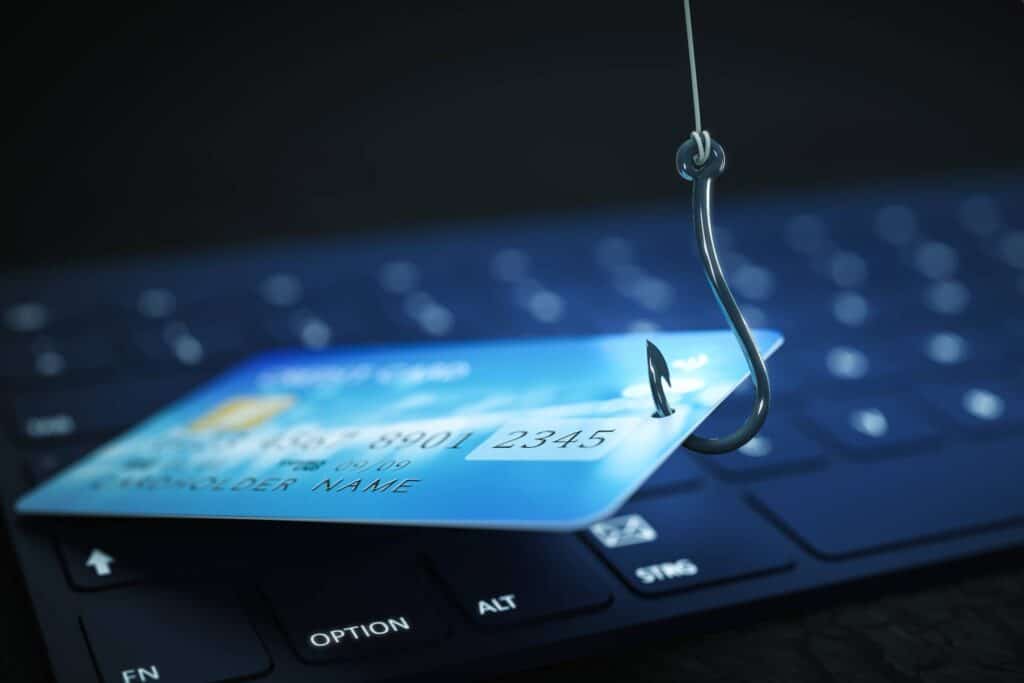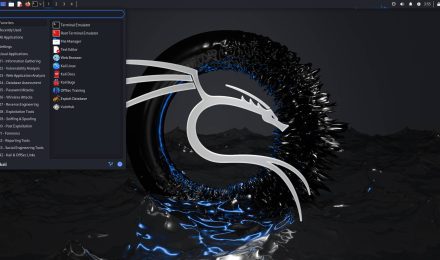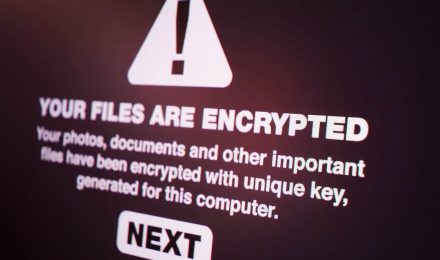
What Is The Dark Web?
The dark web is an unregulated and hidden part of the internet that is not accessible through regular search engines. Despite its reputation as a hub of criminal activity, research conducted by Daniel Moore and Thomas Rid of King’s College in London found that 57% of the 2,723 live dark web sites they studied in 2015 contained illicit material.
Unfortunately, the situation has only worsened in recent years. A study conducted by Dr. Michael McGuires at the University of Surrey, “Into the Web of Profit,” revealed that the number of dark web listings that could potentially harm an enterprise has increased by 20% since 2016. Out of all such listings, 60% pose a risk to businesses, excluding those that sell drugs.
The dark web is a part of the internet that isn’t indexed by search engines.
The Deep web vs. The dark web: What’s the difference?
The concepts of “the deep web” and “the dark web” are frequently confused, but they are distinct. The deep web refers to all the online content that is not indexed by search engines and cannot be discovered through standard search methods. This encompasses any information that requires a login, is behind a paywall, or has been blocked from search engine indexing by the content owner.
Examples of deep web content include medical records, paid content, members-only websites, and confidential business pages. It is estimated that the deep web makes up anywhere from 96% to 99% of the internet, while only a small portion of the internet can be accessed through a regular web browser, known as the “clear web”.
The dark web is a portion of the deep web that has been deliberately concealed and can only be accessed using specific browsers such as Tor. The size of the dark web is uncertain, but it is thought to be around 5% of the total internet. Despite its ominous name, not all of the dark web is used for illicit activities.
- Dark web browser
Don’t be misled by the appearance of a lively marketplace on the dark web. Navigating it is not a simple task. The anonymity of the users and the presence of scammers make it a chaotic and messy place.
To access the dark web, you need to use the Tor browser, which allows you to surf the web anonymously by routing your requests through a series of proxy servers operated by volunteers around the world. While the Tor browser offers a high level of privacy, the result is an unpredictable, unreliable, and slow browsing experience. Despite these challenges, the dark web offers a unique opportunity to explore the darker side of human nature without having to physically put yourself in harm’s way.
- Dark web search engine
Searching the dark web can be a challenging task, as the constantly evolving landscape makes it difficult for even the best dark web search engines to keep up. The search experience is reminiscent of the early days of the internet, where finding relevant information was a hit or miss affair. Despite the existence of advanced search engines such as Grams, results can often be repetitive and irrelevant. Alternative options, such as The Hidden Wiki, are often hindered by numerous timed-out connections and 404 errors, making the search process frustrating for users.
Dark web websites
Dark web websites may look similar to regular websites, but they have distinct characteristics that set them apart. Firstly, their naming structure is different, with websites ending in “.onion” instead of the usual “.com” or “.co”. This is a special-use top level domain suffix that designates an anonymous hidden service that can only be accessed through the Tor network. Browsing these sites requires a specific proxy to access them, making them inaccessible to regular browsers.
Another distinctive feature of dark web websites is their scrambled and often unintelligible URL structure. For instance, the well-known commerce site, Dream Market, has an address “eajwlvm3z2lcca76.onion” that is impossible to remember. Many dark web websites are created by scammers who keep moving to avoid being caught by their victims. Even established commerce sites that have been operating for a long time may suddenly disappear if their owners decide to leave with the escrow money they were holding for their customers.
Law enforcement agencies are continually working to track down and prosecute the owners of sites that sell illegal goods and services. One example of their success was the shutdown of AlphaBay, the largest source of contraband on the dark web, by a team of cyber cops from three countries in the summer of 2017. However, many merchants simply moved to other platforms.
The Tor network’s anonymous nature also makes it susceptible to DDoS attacks, according to Patrick Tiquet, Director of Security & Architecture at Keeper Security. As a result, sites are constantly changing their addresses to avoid these attacks, making the environment very dynamic. This leads to varying levels of search quality and a lot of outdated material.
For sale on the dark web
The growth of the dark web can be attributed to the rise of bitcoin, a cryptocurrency that enables anonymous transactions. This currency is the preferred method of payment for the majority of dark web commerce sites. Although these sites offer features found in any e-commerce platform, such as reviews, shopping carts, and forums, the anonymity of the users raises questions about the reliability of these features. The lack of a central authority also means that disputes have to be resolved by the parties involved and that the credibility of the ratings system is doubtful.
The buying and selling of illegal goods and services on the dark web comes with significant risks. The lack of regulation and quality control means that scammers and thieves thrive in this environment. Moreover, the encrypted nature of the transactions and the need to cross international borders increases the likelihood of buyers getting caught by authorities.
The prices for various types of stolen data and services traded on the dark web are constantly changing, but the current prices as of 2023 are:
- A cloned credit card with a PIN for $25 to $35
- Credit card details with an account balance of up to $5,000 for $240
- Stolen online banking logins with a balance of at least $2,000 for $120
- PayPal transfers from stolen accounts for $50 to $340
- A hacked Coinbase verified account for $610
- A hacked social media account for $1 to $60
- A hacked Gmail account for $80and a hacked eBay account for $1000.
“The dark web is a double-edged sword, a tool for both good and evil, and a constant reminder of the power and danger of technology.”
Is the dark web illegal?
It’s important to note that not everything on the dark web is negative or illegal. The Tor network was initially created to provide a secure and anonymous means of communication, and it still serves a vital role in enabling people to express their opinions freely in countries where internet access is restricted or where surveillance is common.
For those interested in privacy protection or cryptocurrency, the dark web offers a wealth of information. There are numerous encrypted email services, tutorials on how to install a secure operating system, and advanced privacy tips. There’s also content that you might expect to find on the regular web, such as access to rare books, mainstream political news, and a guide to the steam tunnels at Virginia Tech. Intel Exchange allows for anonymous discussions on current events, and there are several whistleblower sites, including a dark web version of WikiLeaks. The Pirate Bay, a BitTorrent site that has been shut down multiple times by law enforcement, is also active on the dark web. Even Facebook has a presence there.
As the dark web continues to evolve, more and more legitimate companies are establishing a presence there, which demonstrates their commitment to being up-to-date and on the cutting edge. The dark web is also monitored by law enforcement agencies, who keep an eye out for stolen data from security breaches that may lead to the perpetrators, and by many mainstream media organizations, who scour whistleblower sites for news.
Staying on top of the hacker underground
Monitoring the dark web is crucial for staying informed about the activities of the hacker community. By regularly checking in, your able to gather valuable information about what information is being traded and what hackers are targeting. This helps with situational awareness and threat analysis. If you discover that your personal information is available on the dark web, there is little you can do to rectify the situation. However, being aware of the breach is a first step towards taking necessary precautions.
In conclusion as the ICT WEB, visiting the dark web can be a unique and eye-opening experience. However, it comes with its own set of challenges, including slow performance, inconsistent availability, and sometimes unsettling content. As a general rule, we advise our clients not to engage in any transactions or purchases on the dark web.
Take the next step in optimizing your IT solutions. Whether it’s cybersecurity, software development, SEO, managed IT services, website development, or graphic design, we’re here to assist you. Contact us today at + (256) 781 353987 or drop us an email at [email protected]. Let’s embark on a journey towards innovation and excellence together!






